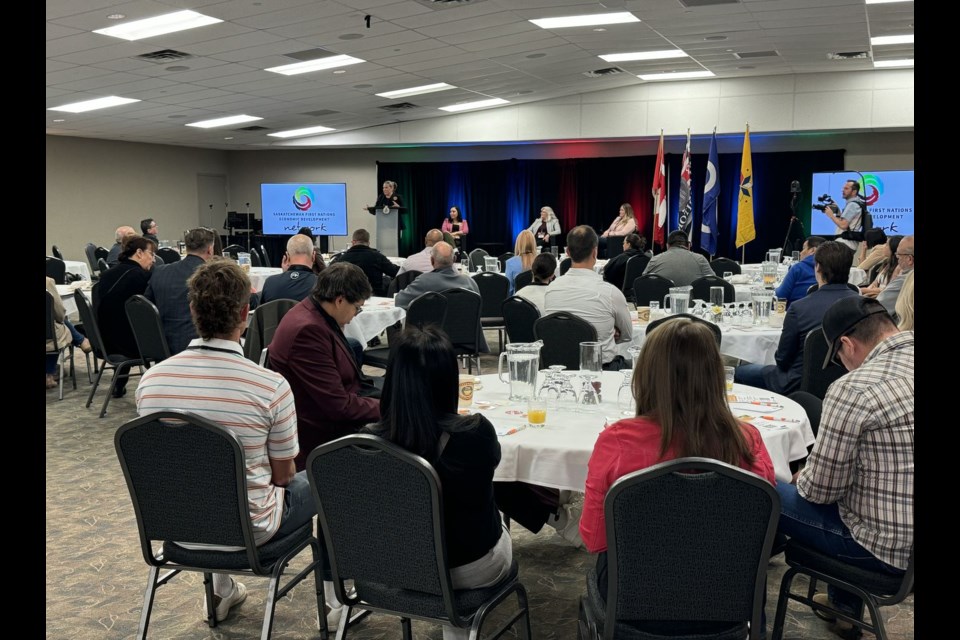SASKATOON — Food security and affordability are just a couple of the major food-related issues people in Saskatchewan face, particularly those in remote communities and First Nations.
As such, the miyomîciwin ‘Good Food’ Conference took place June 18 in Saskatoon, an event designed to connect Indigenous leaders, business owners, and investors to explore opportunities for Indigenous participation in the food sector.
“There isn’t a lot of conversations around food security in our nation (of Canada). I think a lot of solutions for food security are going to be solved by young, eager entrepreneurs and leaders,” said Kendra Wack, executive director of Female Entrepreneurs in Agri-Food Development (FEAD).
“I wanted to come together in a way that would be meaningful, and get new businesses ideated in a way that people really felt empowered.”
The inaugural event, put on by FEAD, the Saskatchewan Economic Development Network, and the Saskatchewan Food Centre, was attended by representatives from both the federal and provincial government, as well as community leaders and entrepreneurs across Saskatchewan.
Wack said she believes the conversations at the conference will drive impact and reduce barriers for communities.
“I’m seeing newly budding Indigenous founders who are focused on culturally aligned foods that are deeply rooted in health and community impacts,” said Wack.
“Jenni (Lessard) is the perfect example of a young founder that is passionate about food and the community connection it can make,” she said.
One of the keynote speakers at the event, Lessard is an Indigenous Chef from Prince Albert, who has been cooking for as long as she can remember. She started her own restaurant in Birch Hills at a young age, eventually moving to Saskatoon to open a catering business before becoming the executive Chef at Wanuskewin Heritage Park.
She now owns a culinary consulting business called Inspired by Nature Culinary Consulting and is enthusiastic about using food as a way to introduce culture, nutrition, and passion into any business.
“Saskatchewan has been my landscape for as long as I’ve known, we have so many incredible products and ingredients, and such a lively food scene,” she said.
“A lot of people are starting to get interested in it now. The focus is to find a good way to keep the community first, to collaborate and share to figure out how to make it sustainable and affordable.”
Lessard shared her personal story in hope it would connect with others, and highlight how important food is to Indigenous culture and tourism. She even is going home with a new goal – to create a whole menu catering to those with diabetes – suggested by one of the attendees.
“I have homework to do now,” she said. “I think a lot of goodwill sprouts out of this.”
Annie Charles, executive director of Indigenous Destinations Saskatchewan, also spoke at the conference and reflected on how important it is to find and support the Jenni Lessards of the world.
“We need to go out there and learn about who is doing what in their communities. Finding those hidden gem that we can help support and break into the world of economic development,” said Charles.
Charles said there are a lot of events that focus on farm-to-fork, but the same sort of events need to be created for Indigenous communities and businesses to highlight what they produce.
“We need to highlight their cultures, their stories, and their experiences,” she said. “There’s opportunities for people to be able to produce food in the province, but they’re not doing it. There are organizations out there willing to help and guide people to start those businesses.”
Producers or potential producers can contact Indigenous Destinations Saskatchewan or the Food Centre to help start or guide food production businesses.




